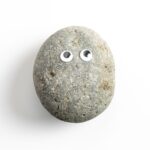Get ready to breathe easier on the International Day of Clean Air — September 7 — a time to recognize the amount of work that must be done to reduce the effects of smog, smoke, airborne chemicals like excessive CO₂, and other forms of harmful air pollution. It’s estimated that about seven million people worldwide die from diseases related to unclean air each year. And according to U.N. Secretary General Antonio Guterres, nine out of ten people regularly breathe polluted air.
History of International Day of Clean Air
In a document compiled and presented at the U.N.’s 74th General Assembly and adopted on December 19, 2019, the following text addresses clean air, which is only a tiny part of the whole resolution. “…[C]lean air is important for the health and day-to-day lives of people … [and] air pollution is the single greatest environmental risk to human health and one of the main avoidable causes of death and disease globally.”
The resolution also stresses the importance of across-borders cooperation, since air pollution does not respect political boundaries, and it emphasizes that green solutions like electric and hybrid cars are becoming more and more affordable. World leaders have enthusiastically recognized the day and its meaning.
Moon Jae-in, President of the Republic of Korea, was quoted in September of 2020 as saying, “I am very pleased to celebrate the first International Day of Clean Air for blue skies, which was adopted at the UN General Assembly last year. I hope this event [will] help enhance global public awareness of … transboundary air pollution and provides [sic] an important milestone in the global efforts to harness solution-based actions for cleaner air.”
According to the Geneva Environment Network, poor air quality has implications for a wide range of human rights, including the rights to life, health, water, food, housing and an adequate standard of living. Air pollution also clearly violates the right to a healthy and sustainable environment. However, air pollution is also a preventable problem. The benefits of fulfilling the right to breathe clean air for all humanity are incalculable!
Science shows there are numerous health and psychological benefits to breathing clean, fresh air. It helps clear our lungs, gives us more energy and mental focus, lowers our blood pressure and heart rate, helps us heal faster and even can improve our digestions. The United Nations recognition of the difference in air quality and the intention to do more to purify the air we breathe is important both symbolically and in a practical sense. Together, on the International Day of Clean Air and beyond, we can all take part in that action.
International Day of Clean Air timeline
Congress passes the Air Quality Control Act, giving states a timetable within which they are required to come up with preventative measures.
The U.S. Congress passes the Clean Air Act, giving authority to the brand-new Environmental Protection Agency to set national air quality standards.
In Resolution 212 of Session 74, the United Nations affirms member countries’ increased continuing commitment to cleaning the world’s air.
Across the globe on September 7, leaders mark the inaugural International Day of Clean Air with spoken addresses, publicity campaigns, and local initiatives to clean up the environment.
International Day of Clean Air FAQs
Why is clean air important?
By breathing cleaner air, the World Health Organization states that you can reduce the risk of stroke, heart disease, lung cancer and respiratory diseases such as asthma. An air purifier from Blueair removes airborne pollutants and thereby greatly reduces the health effects associated with breathing bad indoor air.
How does air pollution affect crops?
Ozone (O₃) is by far the most prevalent danger to commercial crop growth. Plants with sensitivities to ozone will lose their evolutionary competitive advantage. Beans are especially susceptible, with world soybean crops facing up to a 15% reduction in yield.
How do I know what my local levels of air pollution are?
Check your newspaper or go online to find your region’s Air Quality Index each day, usually color-coded with orange and red indicating the most dangerous levels. Note — AQI’s are not standardized between regions; they’re for local public information only.
How To Observe The International Day Of Clean Air
Make your voice heard
On this day, search your heart and follow the course you believe best, by voting for elected officials whose views coincide with your own. As of this writing, the “Green New Deal” is still just a proposed plan by leaders in the running, but if you’re for a healthier natural environment, that’s one issue to follow closely as you cast your ballots, now and in the future.
Attend an official event
In 2020, the official opening for the International Day of Clean Air was held in South Korea, perhaps not an easy destination to get to for our readers, but momentum continues to build during its second year, and we wouldn’t be surprised if this year you found a rally or conference close by — you could even volunteer!
Spread the word
Today, the internet can be a huge force for good and a catalyst for learning and change. If you’re passionate about cleaning up the atmosphere and the environment in general, post about it with the hashtag #InternationalDayOfCleanAir and ask your friends and followers to repost. This is one holiday that’s not only fun but also important. Everybody wants to breathe free, right?
5 Amazing Facts About The United Nations
Making it explicit
In 1948, with the adoption of the Universal Declaration of Human Rights by U.N. member nations, the first consensus about the nature of human freedom was reached.
Emphasis on the “peace”
The budget of the U.N.’s Peacekeeping force represents only a half-percent of global military spending.
Lending a helping hand
The U.N. provides life-saving assistance to millions of refugees of violence, conflict, and persecution — a group of over 65 million people.
We believe
In a recent poll conducted by the nonpartisan Better World Campaign, 79% of respondents said they believe that the United Nations is needed today.
And don’t forget the youngsters
The United Nations Children's Fund (UNICEF) has been a key partner in the eradication of polio — reducing worldwide cases by 99% since 1988.
Why We Love The International Day Of Clean Air
It’s good for future generations
It’s very often stated, but no less true — our world’s environment is a bequest that we will leave to our children and grandchildren. The more current generations can whip pollution problems into shape, the better the world of the future will look.
It represents an ideal, put into action
Talk is cheap. But real initiatives are currently in place to battle air pollution, and more are coming down the pike. If you care about a clean, healthy environment, take the chance today to get involved and be a good part of history.
It’s a collaboration between countries around the world
It’s one of the things we like about the U.N. — it’s a truly global coalition. The world is getting smaller, with information and the power that stems from it becoming more readily available by the day. To us, the U.N. represents the ethical use of that power, in a very real and important way.
International Day of Clean Air dates
| Year | Date | Day |
|---|---|---|
| 2025 | September 7 | Sunday |
| 2026 | September 7 | Monday |
| 2027 | September 7 | Tuesday |
| 2028 | September 7 | Thursday |
| 2029 | September 7 | Friday |




























